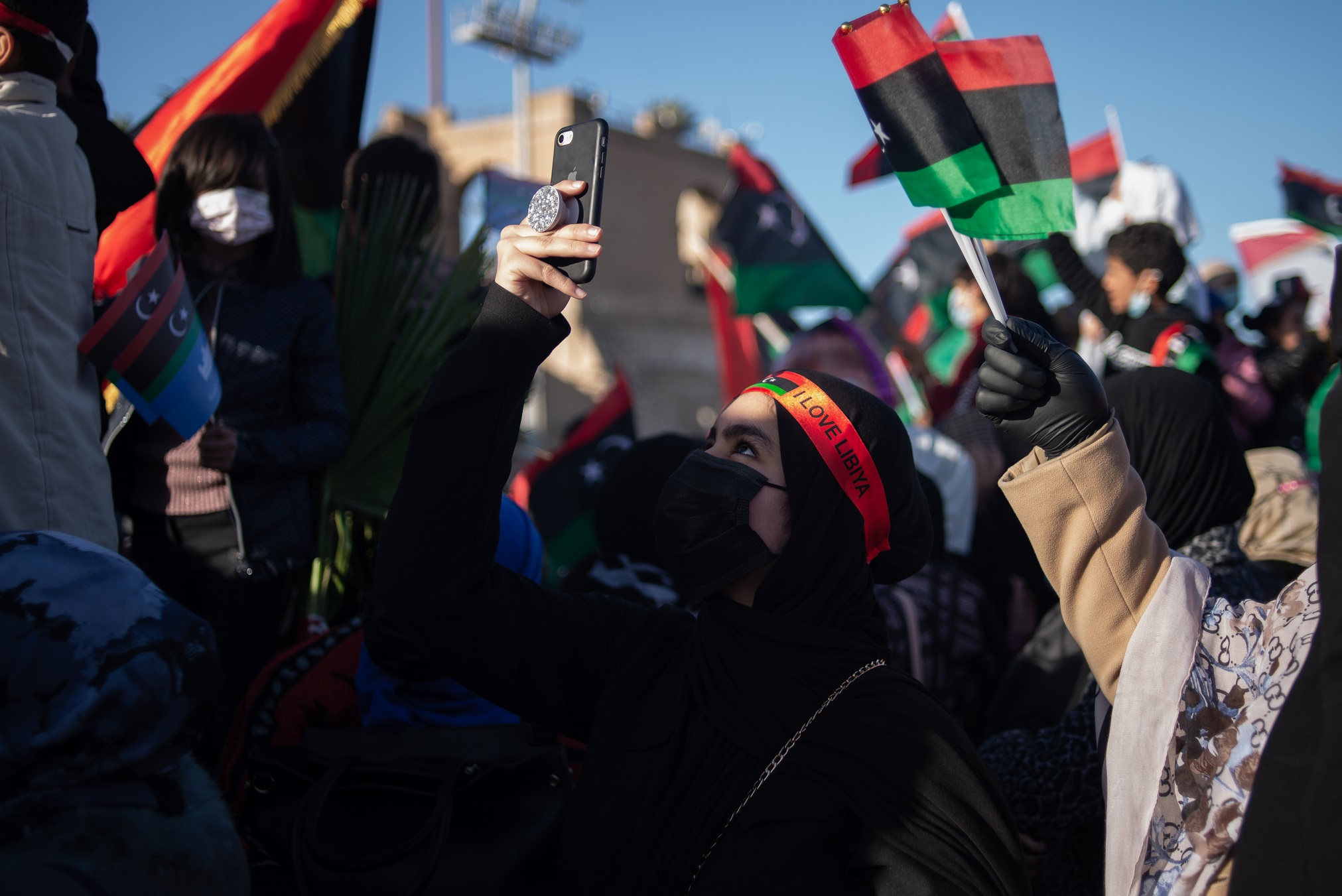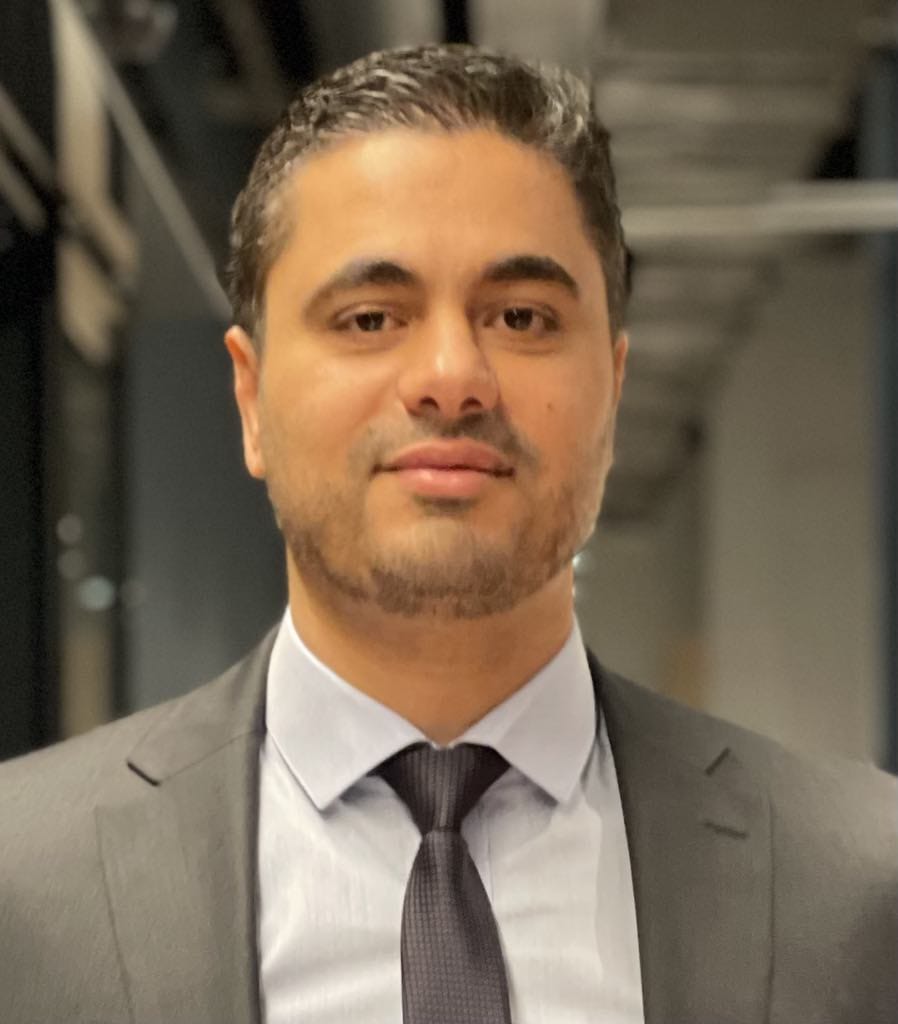"سأعتقلك فور عودتك إلى البلاد".
كانت هذه العبارة التهديدية فحوى رسالة أحد المسؤولين الأمنيين إلى زميلي الذي أكد ونشر خبر إقالته من مؤسسته.
حصل زميلي على نسخة من قرار الإقالة من شخصية اعتبارية ومسؤولة وذلك بعد انتشار الخبر على منصات التواصل الاجتماعي فقام بكتابته على شريط العاجل واعتماده في نشرة الأخبار التالية. إلا أن نفس المسؤول تراجع عن تصريحاته بالتزامن مع سحب القرار وحذفه من موقع المؤسسة ليصبح زميلي الصحفي في موقف لا يحسد عليه ويتعرض للتهديد قبل أن تتدخل إدارة القناة التي يعمل بها وتقوم بتسوية المشكلة.
في الحقيقة هذا ليس هو الموقف الأول من نوعه الذي نتعرض له نحن كصحفيين ليبيين في الفترة الأخيرة. فإلى جانب الانقسام والاصطفاف السياسي وعداوة بعض النخب السياسية لهذه الوسيلة الإعلامية أو تلك، أصبحت هناك عقبة جديدة تواجه عملنا وهي عدم صدق المسؤولين وتراجعهم عن تصريحاتهم.
بكل تأكيد لا يمكننا أن نعمم هذه التصرفات على الجميع لكنها أصبحت ظاهرة لافتة تتكرر أسبوعيا تقريبا في غرف الأخبار واضعة الصحفي والمؤسسات الإعلامية موضع شك دائم من قبل الجمهور!
التملص والتراجع عن التصريحات صعّب من عمل الصحفي في ليبيا خصوصا أننا نعمل في ظروف استثنائية فرضتها الأزمة وحالة الانقسام، إضافة إلى ضعف المؤسسات والإعلام الحكومي، فباتت التسريبات والتصريحات الخاصة هى المصدر الأول للأخبار في ظل غياب الشفافية في المؤسسات وشبه انعدام الإعلان الرسمي من قبل الجهات الحكومية.
مرات ينفي المسؤولون كل ما ورد عنهم من تصريحات لوسيلة إعلامية ما، وكثيرا ما تكون هذه الوسيلة أجنبية وقريبة من الطرف الذي يؤيده خصوصا إن كانت تصريحاته - ولو جزئيا- مست هذا الطرف. وبذلك يكون قد أخلى ذمته وبرأ نفسه أمام من كان يضغط عليه. وهو أمر حدث بالحرف مع أحد الزملاء الذي اتهمته مسؤولة في مؤسسة مهمة بالكذب وتحريف تصريحاتها وتسببت بتعرضه لتحقيق من قبل رئاسة التحرير قبل أن تتصل به وتعتذر له أمام رئيس التحرير نفسه قائلة إنها فعلت ذلك لحماية نفسها بعد تعرضها للتهديد.
هذه الأحداث أضافت لنا بندا جديدا خلال ممارستنا لعملنا، فالتأكد من صحة الخبر ومن هوية وصفة صاحب التصريح لم تعد تكفي. الآن على كل صحفي أن يقوم بتسجيل حديث المسؤول أو أن يلتقط صورة للمحادثة التي تتم معه لحماية نفسه والمؤسسة من أي اتهام لها في حال تكذيب التصريحات.
"لأننا في بلد لا يملك تجربة سياسية ناضجة تكونت بالتراكم عبر الأجيال وترسخت معالمها بكل أركانها من أحزاب ومنظمات مجتمع مدني وإعلام حر ونزيه يعبر عن كافة التوجهات السياسية والأيديولوجية والمصالح المختلفة، طفت على هذا السطح الفقير سياسيا ومعرفيا شخصيات هزيلة لا تملك شيئا من مقومات وأدوات العمل السياسي"، وفق ما يراه الكاتب والصحفي الليبي عبد الله الكبير.
السلوك المتوقع لهذه الشخصيات الهزيلة هو التردد وعدم الحسم وفقدان شجاعة الموقف وعدم تحمل المسؤولية، فهي لا تستطيع اتخاذ القرار الصحيح في الوقت المناسب وباتت مواقفها رهن التقلبات السياسية وضغوط جزء من الرأي العام والأجندات الخارجية. إلى جانب وقوعها تحت سطوة الشخصيات الأكثر حضورا وقوة منها في المشهد السياسي.. هذا الوضع تسبب في التخبط الإعلامي الذي نعيشه الآن.
الصحفي هشام الشلوي يرى أن المشكلة متكونة من شقين. الأول يتعلق بمؤسسات الدولة التي تعاني من حالة صراع داخلي شديد على مستوى شاغلي المناصب الحساسة بين مؤيد لهذا الطرف أو ذاك ما نتج عنه ما نراه من تصرفات "عبثية" في التصريحات أو في حالات سحب وحذف البيانات الرسمية من مواقعها الإلكترونية.
"ما حدث في الموقع الإلكتروني الرسمي للمفوضية العليا للانتخابات يجسد ذلك العبث الذي تحدثت عنه، ففي أكثر من واقعة تم سحب وإلغاء تصريحات وبيانات صحفية بعد تناولها من قبل وسائل الإعلام مرجعين ذلك إلى اختراق موقعهم الإلكتروني غير أن الحقيقة كما يعلمها الجميع هي وجود صراع وانقسام داخلي وخلاف حول التعاطي مع الأحداث السياسية الحاصلة في البلاد"، بحسب رؤية الشلوي.
ما يتحدث عنه الشلوي لم يتوقف فقط عند المفوضية فقد حدثت وقائع مشابهة في الموقع الرسمي لوزارة الداخلية التي أصدرت بيانا رسميا تعاملت معه وسائل الإعلام قبل أن تقوم بسحبه لكن هذه المرة دون أي توضيح.
الشق الثاني للمشكلة وفق الشلوي يتمثل في كيفية تعاطي وسائل الإعلام مع الأحداث في البلاد، فالتسرع هو السمة الأبرز في التعامل مع الأخبار في الفترة الأخيرة دون التركيز على البحث والتدقيق حول مصادر هذه الأخبار.
ويضيف الشلوي: "لأننا في دولة غير مستقرة لا تملك مؤسسات قوية وأجهزة تنفيذية وتشريعية حقيقية يجب أن يكون التدقيق مضاعفا من قبل الصحفي عبر التثبت من مصادر عدة وعدم الخضوع لضغوط مؤسسته الإعلامية ولا يقع فريسة لإغراءات كثرة انتشار الخبر، حيث يجب أن يكون حذرا أثناء تعامله مع المؤسسات الحكومية والمصادر الرسمية وعدم التسرع في نشر الأخبار العاجلة التي لم تعد لها أية ميزة للقنوات التلفزيونية نتيجة سرعة انتشارها على مواقع التواصل الاجتماعي".
ضعف المعلومات والاكتفاء بالبيانات المكتوبة المسربة في الكثير من الأحيان والغياب شبه التام للظهور المصور للمسؤولين ليس هو العقبة الوحيدة التي تواجه الصحفي. فالظاهرة الأخرى الأكثر انتشارا هي التصريحات الخاصة التي يطلب فيها المصدر من الصحفي عدم ذكر اسمه فيها، التي تتكرر كثيرا في الآونة الأخيرة من مسؤولين وحتى من وزراء لتعكس لنا مدى هشاشة وعبثية المشهد السياسي في البلاد وتسمح لهذا المصدر بالتراجع عن تصريحاته وعدم تحمل المسؤولية متى شاء.
الأخطر من ذلك، يرى الشلوي ويوافقه في ذلك كثير من الصحفيين أن بعضا من وسائل الإعلام الليبية جزء من هذا الصراع وتتبنى في بعض الأحيان مواقف وبيانات الأطراف السياسية خصوصا المكتوبة منها بدون أي تدقيق، فقط لأنها تتماشى مع أجندتها السياسية، فتقوم بنشرها بتسرع بغرض التأكيد على أفكارها وتصوراتها للمشهد أو لضرب خصومها.
حتى مع كل هذه الأسباب والمسببات لا يمكننا تجاهل جانب التحايل فيما يحدث، لأن مثل هذا السلوك يأتي أحيانا ضمن قياس رد الفعل. فإذا كان تأثير الخبر المنتشر صادما يتم التراجع عنه، وأحيانا يأتي كتوطئة وتمهيد لامتصاص بعض ردود الفعل المتوقعة حتى يكون مقبولا حين يقع أو لا يتعرض لرد فعل قوي يدفع نحو التراجع عنه مستقبلا. وفي كل الأحوال يكون الإعلام والإعلاميون ضحية لهذه الممارسات السياسية العبثية سواء كانت مقصودة أو غير مقصودة.








































